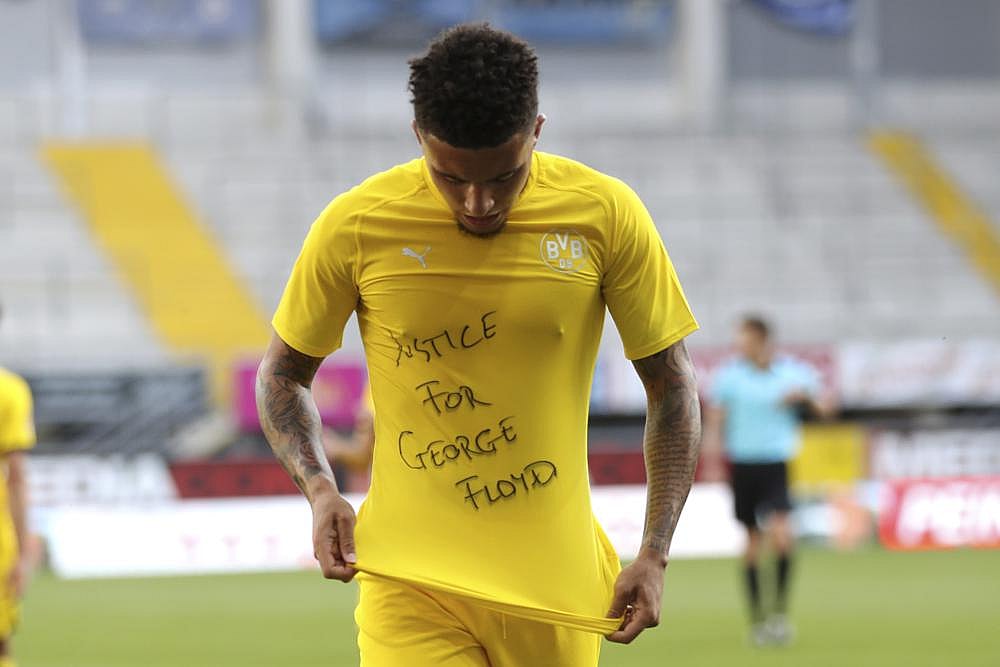Athletes who make political or social justice protests at the Tokyo Olympics were promised legal support Thursday by a global union and an activist group in Germany.
The pledges came one day after the International Olympic Committee confirmed its long-standing ban on “demonstration or political, religious or racial propaganda” on the field of play, medal podiums or official ceremonies.
Raising a fist or kneeling for a national anthem could lead to punishment from the IOC. The Olympic body’s legal commission should clarify what kind of punishment before this year’s games, which open on July 23.
The IOC’s athletes’ commission cited support to uphold Rule 50 of the Olympic Charter from more than two-thirds of about 3,500 replies from consulting athlete groups.
Read More: Christian Coleman to miss Olympics despite reduced ban

“This is precisely the outcome we expected,” said Brendan Schwab, executive director of the World Players Association union. “The Olympic movement doesn’t understand its own history better than the athletes.”
While the IOC said cases would each be judged on merits, athletes who follow the iconic salutes by American sprinters Tommie Smith and John Carlos at the 1968 Mexico City Olympics still could be sent home.
“Any athlete sanctioned at the Tokyo Olympics will have the full backing of the World Players,” Schwab told The Associated Press in a telephone interview from Australia.
The independent group representing German athletes pledged legal backing for its national team.
“Should German athletes decide to peacefully stand up for fundamental values such as fighting racism during the Olympic Games, they can rely on the legal support of Athleten Deutschland,” Johannes Herber, the group’s chief executive, said in a statement.
Both Schwab and Herber said minorities would be protected from discrimination if the IOC recognized the human rights of athletes to express themselves.
The IOC erred by trying to regulate the place where a protest might take place instead of the statement’s content, Schwab said, adding athletes’ freedom of expression in Olympic venues “should be respected, protected and indeed promoted.”

Read More: Simone Biles says she’s returning to Olympics to ‘be a voice’ for abuse survivors
There are three levels of disciplinary action for athletes breaching Rule 50: from the IOC, their sport’s governing body, and their national Olympic committee.
However, the leaders of two of the biggest Olympic bodies — World Athletics president Sebastian Coe and FIFA president Gianni Infantino — have publicly opposed punishing their athletes for social justice statements. Coe gave his annual award last December to Smith, Carlos and the other sprinter on the 200-meter podium in Mexico City, Peter Norman of Australia.
The U.S. Olympic and Paralympic Committee inducted Smith and Carlos into its Hall of Fame in 2019. It pledged in December not to take action against athletes protesting at their Olympic trials for Tokyo.
“There is enormous confusion over responsibility to sanction,” Schwab said.
Slogans such as “Black Lives Matter” will not be allowed on athlete apparel at Olympic venues, though the IOC on Wednesday approved using the words peace, respect, solidarity, inclusion and equality on T-shirts.
Have you subscribed to theGrio’s new podcast “Dear Culture”? Download our newest episodes now!
TheGrio is now on Apple TV, Amazon Fire, and Roku. Download theGrio today!

